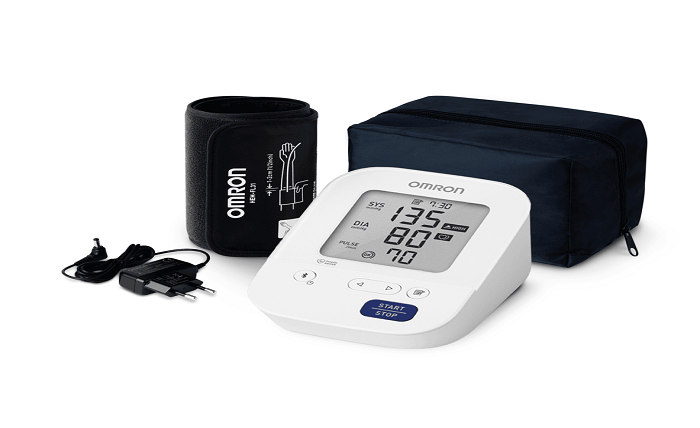In recent years, the integration of Artificial Intelligence (AI) in the realm of technical health has emerged as a transformative force, revolutionizing the way healthcare is delivered, managed, and experienced. This convergence of advanced technology and healthcare, often termed AI in technical health, holds immense potential to address longstanding challenges in the healthcare industry while unlocking new opportunities for improving patient outcomes and operational efficiency. This essay explores the multifaceted impact of AI in technical health, examining its applications in medical diagnosis, treatment, healthcare delivery, and the broader implications for the future of healthcare.
AI in Medical Diagnosis:
One of the most significant contributions of AI in technical health lies in its ability to enhance medical diagnosis. Traditional diagnostic processes often rely on human expertise and interpretation, which can be prone to errors and variability. However, AI-powered diagnostic systems leverage advanced algorithms and machine learning techniques to analyze vast amounts of medical data with unprecedented speed and accuracy. These systems can detect subtle patterns and anomalies in imaging scans, laboratory tests, and patient records, enabling earlier and more precise diagnoses. For example, AI algorithms have demonstrated remarkable performance in detecting abnormalities in medical images such as X-rays, MRIs, and CT scans, leading to improved detection of diseases like cancer, cardiovascular conditions, and neurological disorders. By augmenting the diagnostic capabilities of healthcare providers, AI in medical diagnosis has the potential to save lives, reduce healthcare costs, and enhance patient outcomes.
AI in Treatment and Personalized Medicine:
In addition to diagnosis, AI is revolutionizing treatment protocols and personalized medicine. By analyzing large datasets of patient information, including genetic profiles, medical history, and treatment outcomes, AI algorithms can identify optimal treatment plans tailored to individual patients’ unique characteristics. This personalized approach to healthcare maximizes treatment efficacy, minimizes adverse effects, and improves patient satisfaction. For example, AI-driven decision support systems can assist clinicians in selecting the most appropriate medication dosages, surgical techniques, and rehabilitation plans based on patient-specific factors such as age, gender, genetics, and comorbidities. Furthermore, AI-enabled predictive analytics empower healthcare providers to anticipate disease progression, identify high-risk patients, and intervene proactively to prevent complications. This proactive approach to healthcare not only improves patient outcomes but also reduces healthcare costs by avoiding unnecessary hospitalizations and interventions.
AI in Healthcare Delivery and Management:
Beyond diagnosis and treatment, AI is reshaping healthcare delivery and management processes. AI-powered chatbots and virtual assistants are revolutionizing patient engagement by providing personalized health advice, facilitating appointment scheduling, and delivering remote monitoring services. These digital health solutions enhance access to care, improve patient compliance, and alleviate the burden on healthcare providers by automating routine tasks and administrative processes. Moreover, AI-driven predictive analytics are optimizing hospital operations, such as resource allocation, staff scheduling, and inventory management. By analyzing data from electronic health records, patient admissions, and medical equipment, AI algorithms can identify inefficiencies, streamline workflows, and improve the overall efficiency of healthcare delivery. This, in turn, enhances patient satisfaction, reduces wait times, and enables healthcare organizations to deliver higher quality care with fewer resources.
Challenges and Considerations:
Despite its transformative potential, the widespread adoption of AI in technical health is not without challenges and considerations. One of the primary concerns is related to data privacy and security. The use of AI algorithms requires access to vast amounts of sensitive patient data, raising concerns about data breaches, unauthorized access, and privacy violations. Moreover, there are concerns about algorithm bias and fairness, as AI systems may inadvertently perpetuate existing disparities in healthcare outcomes based on factors such as race, gender, and socioeconomic status. Additionally, the integration of AI technologies into existing healthcare systems requires significant investment in infrastructure, workforce training, and regulatory frameworks. Healthcare organizations must navigate complex regulatory requirements, ethical considerations, and interoperability challenges to ensure the ethical and responsible use of AI in healthcare.
Future Directions and Opportunities:
Looking ahead, the future of AI in technical health holds tremendous promise for further innovation and advancement. Emerging technologies such as deep learning, natural language processing, and predictive analytics are poised to revolutionize healthcare in unprecedented ways. For example, AI-driven virtual assistants and remote monitoring devices have the potential to transform the delivery of primary care, enabling patients to access personalized healthcare services anytime, anywhere. Moreover, AI-enabled precision medicine approaches are unlocking new insights into disease mechanisms, biomarker discovery, and targeted therapies, paving the way for more effective treatments and better patient outcomes. Furthermore, the ongoing development of AI-powered medical devices, wearable technologies, and telehealth platforms is expanding access to healthcare services, particularly in underserved communities and rural areas. By harnessing the power of AI in technical health, healthcare providers can revolutionize the way healthcare is delivered, managed, and experienced, ultimately improving the health and well-being of individuals worldwide.
Conclusion:
In conclusion, AI in technical health represents a paradigm shift in healthcare, offering unprecedented opportunities to transform the diagnosis, treatment, and delivery of healthcare services. By leveraging advanced algorithms and data analytics, AI-powered systems are revolutionizing medical diagnosis, treatment protocols, and healthcare delivery processes. Despite the challenges and considerations associated with its adoption, AI in technical health holds immense promise for improving patient outcomes, enhancing operational efficiency, and driving innovation across the healthcare sector. As the field continues to evolve, it is essential for healthcare organizations, policymakers, and stakeholders to collaborate in ensuring the ethical and responsible use of AI in healthcare, thereby realizing its full potential to revolutionize the future of healthcare.











